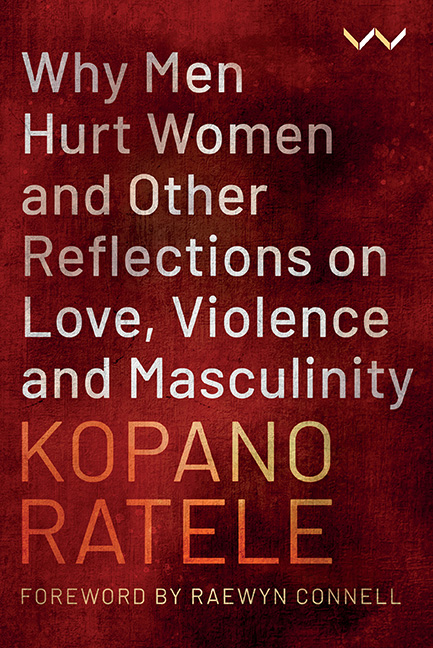7 - I love you, but I wish to hurt you
Published online by Cambridge University Press: 24 November 2023
Summary
In 2017 I saw Unbroken Silence, an unpublished play by Phumeza Rashe-Matoti, who was then artist-in-residence at the Centre for Humanities Research at the University of the Western Cape. It stayed with me for some time afterward. What stuck in my head were the lines uttered by one of the characters in the play: ‘My heart refuses to love and hurt at the same time, so I’m just gonna love you more even though you would kick and strangle me at 12 weeks pregnant.’ These words were so memorable they would lead me to invite and collaborate with the playwright and actors in a subsequent staging of the play at the University of Cape Town in May 2018.
The truth is, I found the character in Unbroken Silence at once recognisable and objectionable, someone I knew too well and who frustrated me. This is then to say she was true to life, complicated. She reminded me once again of that question that had for a long time troubled me, but on which I had delayed reflecting at length. Maybe I had not had the courage up to the moment of my collaboration with the playwright and performers to ask it in writing. Why would a woman love a man who hurts her?
It took me a while, but a time arrived when I found a way to ask the question without being seen as accusatory, for I did not want to be misinterpreted. It could, of course, be a man, a non-binary, gender-fluid or trans individual who is the perpetrator or victim of the aggression. In no way do I blame victims of violence. This is very important to underscore: a person who loves another who kicks her in no way is asking for it, deserves it, or is to blame for the violence.
But a significant breakthrough happened for me. I came to see that what the character in the play was expressing was a mirror image of what some men might say: ‘God knows I love you, but why do you make me hurt you so much?’
It is vital that I also underscore that I do not blame all men for the violence some men commit against women.
- Type
- Chapter
- Information
- Publisher: Wits University PressPrint publication year: 2022



